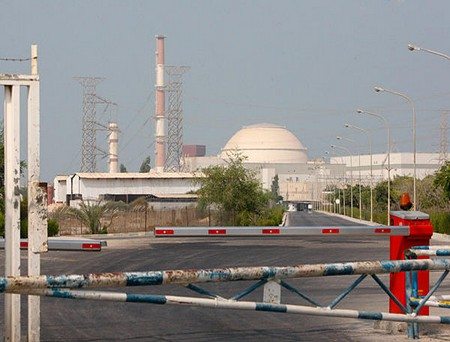Iran offered on Monday to grant the UN nuclear watchdog “full supervision” of its atomic programme for five years if sanctions are lifted, as the EU insisted Tehran first meet its international obligations.
“We have proposed that the agency keep Iran’s activities and nuclear programme under full supervision for five years, providing the sanctions are lifted,” Iranian nuclear chief Fereydoun Abbasi Davani told ISNA news agency.
He neither said when the offer was made to the International Atomic Energy Agency (IAEA) nor what he meant by “full supervision.”
Iran is targeted by four sets of UN Security Council sanctions over its refusal to suspend uranium enrichment amid fears in the West that it seeks to build a nuclear bomb — a charge it vehemently denies.
Much of Iran’s nuclear activities are already under the control of the IAEA, including uranium enrichment — a process which can produce the fuel for a nuclear reactor and also the fissile material for an atomic warhead.
The IAEA said in a confidential report, a copy of which was obtained by AFP on Friday, it is “increasingly concerned about the possible existence in Iran of past or current undisclosed nuclear related activities involving military related organisations.”
These included “activities related to the development of a nuclear payload for a missile”, according to the report, which is due to be discussed by the IAEA’s 35-member board of governors at a September 12-16 meeting.
But Abbasi Davani insisted such allegations were “baseless and fabricated,” and advised IAEA chief Yukiya Amano against “mentioning the alleged studies (in his reports) until he has discussed them with Iran.”
If Amano can demonstrate that the IAEA is “not influenced or pressured by hostile countries, we can have more cooperation with the agency,” he said.
On Monday, the European Union reacted to Abbasi Davani’s latest remarks, saying that the Islamic republic must first re-establish confidence for any sanctions to be lifted.
“Iran still has to comply with its international obligations, despite today’s announcement,” Michael Mann, spokesman for EU foreign policy chief Catherine Ashton, told AFP.
Ashton has made a “concrete proposal” to Iran aimed at building confidence over the aims of its atomic programme, Mann said. “Unfortunately, so far, Iran has not taken up this offer to enter into meaningful talks.”
“Existing UNSC (UN Security Council) resolutions foresee the lifting of sanctions once confidence has been re-established,” he said.
The UN watchdog has for years criticised Tehran for refusing to answer a number of controversial questions about its nuclear programme, and for denying access to certain sites, including the heavy water reactor Iran is building in the central city of Arak.
Iran says the Arak facility — whose commission has been delayed several times — is being constructed by domestic contractors using indigenous expertise, and will house a 40-megatt research reactor.
Progress at the site allegedly been slowed down by sabotage from abroad.
Abbasi Davani, who survived a November 29 assassination attempt which Iran blamed on arch-foes the United States and Israel, also said there had been a rise in Western attempts to sabotage the nuclear programme.
“We have witnessed a rise in acts of sabotage against Iran’s nuclear facilities,” he said. “They continuously seek to harm our nuclear facilities through viruses or sales of faulty equipment.”
Tehran has blamed Israel and the United States for the unexplained disappearances of several of its military officials and nuclear scientists, and for a computer virus attack by the Stuxnet malware in the summer of 2010 against its centrifuges, the uranium enriching device.










